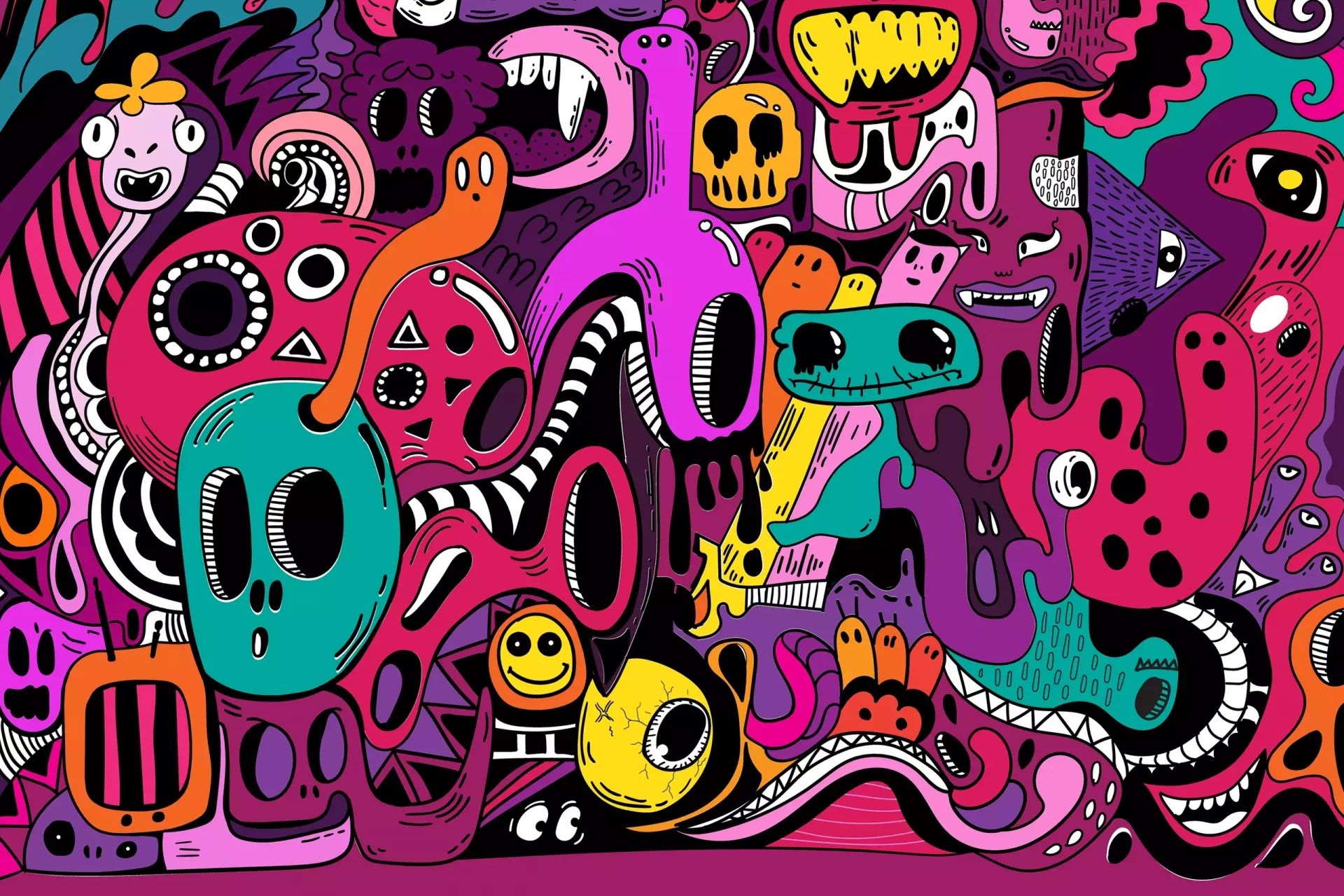What Does Womp Womp Mean In Slang? A Deep Dive Into This Trendy Expression
So, you’ve probably stumbled upon the phrase “womp womp” somewhere on social media or in a casual conversation, and you’re here wondering what the heck it means. Well, buckle up, my friend, because we’re about to take a wild ride through the world of slang, pop culture, and internet lingo. In this article, we’ll break down what “womp womp” means, where it comes from, and how you can use it without sounding like a complete newbie. Trust me, by the end of this, you’ll be dropping “womp womp” like a pro.
Let’s face it, slang evolves faster than we can keep up with. One day you’re vibing with “lit,” the next you’re trying to figure out what “womp womp” even means. Fear not, because this article is here to decode the mystery behind this quirky phrase. Whether you’re a slang enthusiast or just trying to stay relevant, understanding “womp womp” is key to keeping your cool in 2023.
But before we dive headfirst into the juicy details, let’s talk about why slang matters. It’s not just about sounding cool; it’s about connecting with people on a deeper level. Slang bridges gaps, creates communities, and adds flavor to our conversations. So, if you’re ready to spice things up, let’s get started!
Read also:Are Joe Scarborough And Mika Brzezinski Still Married The Inside Scoop Yoursquove Been Waiting For
What Exactly Is Womp Womp?
Alright, so what does “womp womp” mean? At its core, “womp womp” is an expression used to mock disappointment or failure. Think of it as the audio equivalent of a sad trombone sound effect. You know, that iconic sound you hear in cartoons when something goes hilariously wrong? Yeah, that’s pretty much what “womp womp” represents.
But here’s the thing: “womp womp” isn’t just about mocking. It’s often used in a playful, lighthearted way to poke fun at situations that aren’t *that* serious. For example, if someone says they didn’t get the last slice of pizza, you could reply with “womp womp.” It’s all about keeping things chill and not taking life too seriously.
How Did Womp Womp Become Popular?
The origins of “womp womp” can be traced back to the early days of the internet. Like many slang terms, it gained traction through memes, GIFs, and viral videos. The phrase became especially popular on platforms like Twitter, Instagram, and TikTok, where users embraced its humorous tone.
One of the reasons “womp womp” resonated so well was its versatility. Whether you’re reacting to a bad day at work or a failed dating app match, “womp womp” fits perfectly. It’s like a universal language for expressing disappointment in a fun, non-aggressive way.
Where Does the Phrase Come From?
Believe it or not, “womp womp” has roots in actual music. The sound itself is inspired by the classic trombone riff often used in comedy shows and cartoons. Over time, this sound effect made its way into everyday conversations, eventually evolving into the phrase we know today.
But the transition from sound effect to slang wasn’t instantaneous. It took years of cultural evolution and a little help from the internet to turn “womp womp” into a household name. Nowadays, it’s practically impossible to scroll through social media without seeing someone use it in some form or another.
Read also:Misavv The Ultimate Guide To Understanding Its Impact And Potential
Who Popularized the Term?
While it’s hard to pinpoint exactly who popularized “womp womp,” many credit social media influencers and comedians for bringing it into the mainstream. Platforms like TikTok played a huge role in spreading the phrase, as creators used it in skits and challenges that went viral overnight.
Some even argue that “womp womp” owes its popularity to memes. Memes have a way of turning obscure phrases into global sensations, and “womp womp” was no exception. Before you knew it, everyone from teens to grandparents was throwing the phrase around like it was going out of style.
When Should You Use Womp Womp?
Now that you know what “womp womp” means, the next question is: when should you use it? The answer depends on the context and the vibe you’re going for. Here are a few scenarios where “womp womp” fits perfectly:
- When someone shares a minor failure or disappointment.
- When you want to lighten the mood during an awkward moment.
- When you’re trying to make someone laugh.
- When you’re reacting to something that’s not a big deal but still worth acknowledging.
Remember, the key to using “womp womp” effectively is timing. Use it too soon, and you might come off as insensitive. Use it too late, and you risk looking out of touch. It’s all about finding that sweet spot where humor meets empathy.
Examples of Womp Womp in Action
Still not sure how to use “womp womp” in a sentence? Don’t worry, we’ve got you covered. Here are a few examples to help you get started:
- Friend: “I forgot my lunch at home today.” You: “Womp womp, guess you’re eating cafeteria food.”
- Colleague: “My presentation got canceled.” You: “Womp womp, maybe next time.”
- Partner: “I burned dinner.” You: “Womp womp, let’s order takeout!”
See how easy it is? With a little practice, you’ll be using “womp womp” like a pro in no time.
Is Womp Womp Still Relevant?
Here’s the million-dollar question: is “womp womp” still relevant in 2023? The answer is a resounding yes. While slang terms tend to come and go, “womp womp” has managed to stick around thanks to its universal appeal. It’s one of those phrases that transcends age, gender, and cultural boundaries, making it a go-to for anyone looking to add a touch of humor to their conversations.
That said, it’s worth noting that trends can change quickly. If you’re worried about sounding outdated, keep an eye on social media trends to see how people are using “womp womp” in real-time. Chances are, it’ll still be around for a while, but staying informed never hurts.
How to Stay Up-to-Date with Slang
Staying on top of slang trends might seem overwhelming, but it’s easier than you think. Here are a few tips to help you stay in the loop:
- Follow popular social media accounts that focus on language and humor.
- Engage with online communities where slang is frequently used.
- Read articles and blogs about pop culture and internet trends.
- Experiment with new phrases in your own conversations to see what sticks.
By keeping your finger on the pulse of internet culture, you’ll always know what’s hot and what’s not.
Does Womp Womp Have a Negative Connotation?
One common concern about “womp womp” is whether it carries a negative connotation. The short answer is: it depends on how you use it. While “womp womp” is generally playful and lighthearted, it can come off as sarcastic or dismissive if used improperly.
For example, using “womp womp” to mock someone’s serious problems might come across as insensitive. On the other hand, using it to react to a minor inconvenience is usually seen as humorous and relatable. As with any form of communication, it’s all about context and intent.
How to Avoid Misusing Womp Womp
If you’re worried about misusing “womp womp,” here are a few guidelines to keep in mind:
- Use it in situations where the stakes are low and the humor is obvious.
- Avoid using it to belittle or insult others.
- Pay attention to the other person’s reaction and adjust accordingly.
- When in doubt, err on the side of caution.
By following these tips, you can ensure that your use of “womp womp” is both effective and respectful.
Womp Womp in Popular Culture
Let’s talk about how “womp womp” has made its mark in popular culture. From TV shows to movies, this phrase has popped up in some unexpected places. For example, it’s been used in episodes of “The Simpsons,” “Family Guy,” and even “South Park.” These shows have a knack for incorporating internet slang into their scripts, and “womp womp” is no exception.
But it’s not just limited to cartoons. You’ll find “womp womp” sprinkled throughout social media, music, and even advertising. Brands have caught on to its appeal, using it in campaigns to connect with younger audiences. It’s a testament to the phrase’s versatility and staying power.
Why Does Womp Womp Resonate with People?
So why does “womp womp” resonate so well with people? There are a few reasons:
- It’s simple and easy to remember.
- It’s universally relatable.
- It adds humor to otherwise mundane situations.
- It’s a great way to break the ice in conversations.
At the end of the day, “womp womp” is more than just a phrase; it’s a cultural phenomenon that captures the essence of modern communication.
Conclusion: Embrace the Power of Womp Womp
In conclusion, “womp womp” is a powerful tool for adding humor and levity to your conversations. Whether you’re reacting to a minor mishap or trying to lighten the mood, this phrase has got you covered. Just remember to use it wisely and consider the context before dropping it into your next chat.
So, what are you waiting for? Go out there and start using “womp womp” in your daily life. And if you found this article helpful, don’t forget to share it with your friends. Who knows? You might just start a “womp womp” revolution!
Table of Contents
- What Exactly Is Womp Womp?
- How Did Womp Womp Become Popular?
- Where Does the Phrase Come From?
- When Should You Use Womp Womp?
- Is Womp Womp Still Relevant?
- Does Womp Womp Have a Negative Connotation?
- Womp Womp in Popular Culture
- Why Does Womp Womp Resonate with People?
- Conclusion: Embrace the Power of Womp Womp
Article Recommendations


